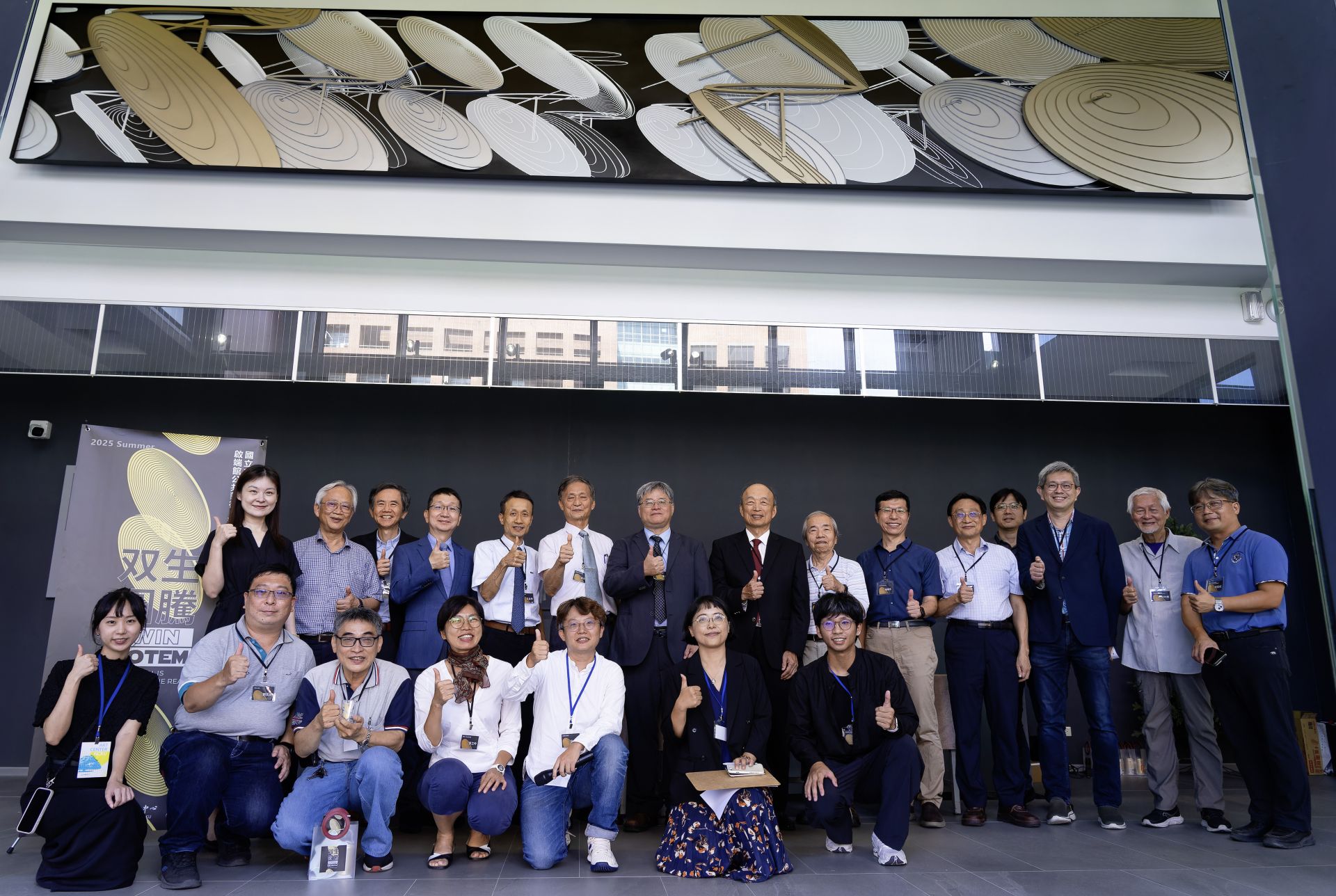The Repair of Lixian Building was Done and Students of NCKU Institute of Art Studies Moved in Happily
President Su of NCKU expressed sincere gratitude to the architects and technicians who participated in the restoration, as well as to the Ministry of Culture, the predecessors of the Bureau of Cultural Heritage, and the administrative units of Tainan City for their support. She also thanked Professor Min-Fu Hsu of the department of Architecture for his contribution. President Su said she was honored to have participated in the restoration and renovation of the Department of History, Dacheng Hall, and now the Lixian Building and other national monuments during her eight-year tenure. This has made it possible to accumulate and learn from the precious assets on the university campus. She congratulated the Institute of Art Studies for having an absolutely beautiful and excellent venue to promote the spirit. She also mentioned that she hopes to see the faculty and students continue to cherish and humble themselves and work with the community to build and promote values for future generations.
Meng-Ru Shen, the new president of NCKU, said that he loves old houses and buildings very much. In addition to the unique atmosphere, he also saw the special craftsman carefully restoring the important indicators of the building during the renovation process of Lixian Building. "The world's most admired universities have outstanding architecture and furnishings," he said. In addition to the important historical corridors constructed by Gechi Hall, the Museum and the Future Hall, the historical sites formed by the Department of History Hall, Dacheng Hall, and the Li Xian Building are also an important part of the humanistic ecosystem of National Cheng Kung University. He also mentioned that since 2010, NCKU has invested an average of more than $20 million per year in the maintenance of monuments and will continue to do so.
According to Chi-Ming Chen, the director of the Bureau of Cultural Heritage, Ministry of Culture (BOCH), only a few universities have the awareness of preserving cultural heritage and the ability to restore and preserve it. This time, director Chen attended the ceremony as an alumni of NCKU and expressed his gratitude to President Su on behalf of a competent authority. At the same time, he affirmed that President Shen's positive attitude towards the preservation of cultural heritage will be a great blessing for cultural heritage. He pointed out that because of the high cost and time-consuming restoration of historic sites, it is not easy to complete smoothly. The restoration process relies on the architects to plan, and site managers to play an important role in the helm. He also praised the dedication and commitment of the restoration masters and said he will strive to create a conducive environment for the restoration masters in the future.
The National Historic Site Li Xian Building, formerly the Japanese Infantry Regiment Official Residences of the 2nd Group, was constructed in 1912 as part of the second phase of the permanent military barracks program, alongside Dacheng Hall (Department of Industrial Design) and the Department of History. The Nationalist Army occupied the building after 1945, and it served as a military barracks until 1966 when National Cheng Kung University took over the current Kwang Fu campus. In 1968, the building was renovated and renamed "Li Xian Building," serving as a dormitory for returning scholars or visiting professors.
Since 1994, the Institute of Art Studies of NCKU and the Research and Development Foundation of NCKU have occupied the Li Xian Building. In 1999, it was designated a municipal historical site in Tainan, and in 2003, it was designated a national historical site. The museum's associate researcher, Yu-Hua Tsai, said that due to the aging and patchy appearance of the wall materials and plant growth, the internal structure of the stratum was sinking to the west, leading to problems such as misaligned arches, fractured walls, and aging reinforced concrete materials. As a result, the renovation began on December 14, 2019, and was completed in December 2022 with total funding of over 43.09 million NTD, with 40% subsidized by the Bureau of Cultural Heritage, Ministry of Culture. The overall appearance of the restored building is similar to that of 1912.
Associate researcher Yu-Hua Tsai said that the restoration project allowed the public to reacquaint themselves with the Li Xian Building. The key operations included the restoration of the originally closed interior ventilation windows to improve the original central corridor's dark and humid problem, as well as the discovery of old reinforced concrete structures on the roof and exterior walls, which facilitated the preservation and documentation of architectural structures. During the process, details of the original material colors of the doors and windows, the traditional techniques of lattices, and the fact that the interior of the decorative structure of the bull's leg originally set on the arch is a wooden panel were discovered. The objects collected during the restoration project will be organized by the NCKU Museum and planned for subsequent exhibitions in the future.
Since 2010, National Cheng Kung University has invested an average of about 20 million dollars per year in the restoration of monuments and historical buildings. Along with the Li Xian Building, the Former Japanese Infantry Regiment Official Residences of the 2nd Group and the first group in Taiwan, the Formerly Japanese Imperial Army Tainan Hospital, the East Gate Remain, Tainan Prefectural City Wall, and the Gechi Hall in the former Tainan High Technical School building have also been completed. Additionally, the outer walls of Da Cheng Hall in the former Tainan High Technical School building and the Department of History have been renovated.
The organizer of the ceremony, Yi-Fang Wu, the Director of the Institute of Art Studies at NCKU, expressed gratitude towards the faculty and administration of the College of Liberal Arts for their assistance to the students and faculty of the Institute of Art Studies during the restoration of the Li Xian Building. The event was attended by many distinguished guests, including Liu Jinchang, the design and supervision unit from Liu Jinchang Architects, Lin Chang-Hong, the owner of the construction company Chang-Hong Construction Co., Ltd, and Tsai Dong-Lin, the restoration master. Also present were Li Xue-Chi, the Secretary of the Tainan Municipal Administration of Culture Heritage, Huang Chiung-Ying, the Director of the National Tainan Living Art Center, Chen Yuh-Neu, the Vice President of National Cheng Kung University, Chang Jia-Chiang, a Professor from the Department of Architecture, as well as the faculty and administration of the university.
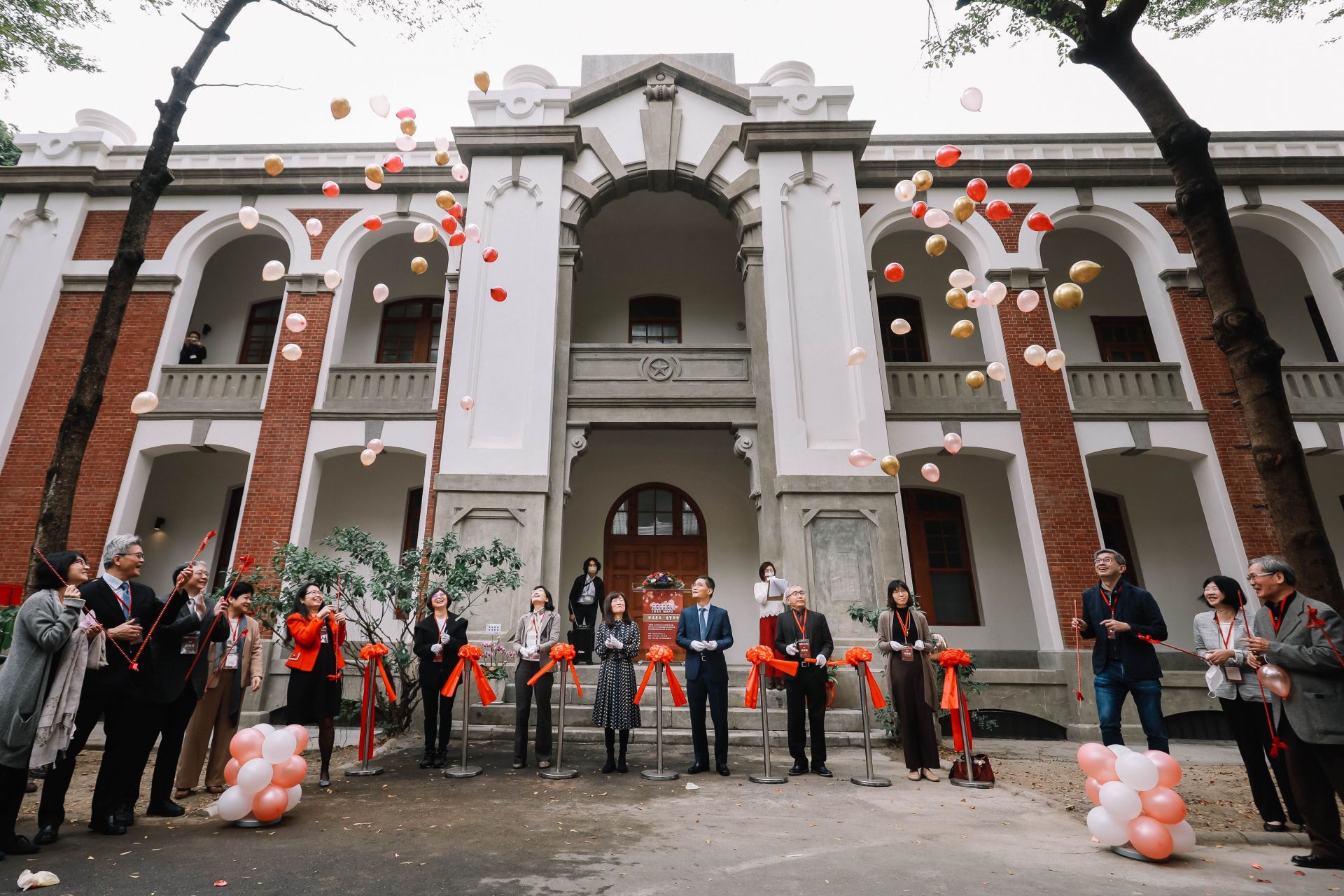
After more than 2 years of restoration work, the national historic site "Li Xian Building" on the Kuang Fu campus of NCKU held a ceremony to celebrate its completion on January 11, 2023.
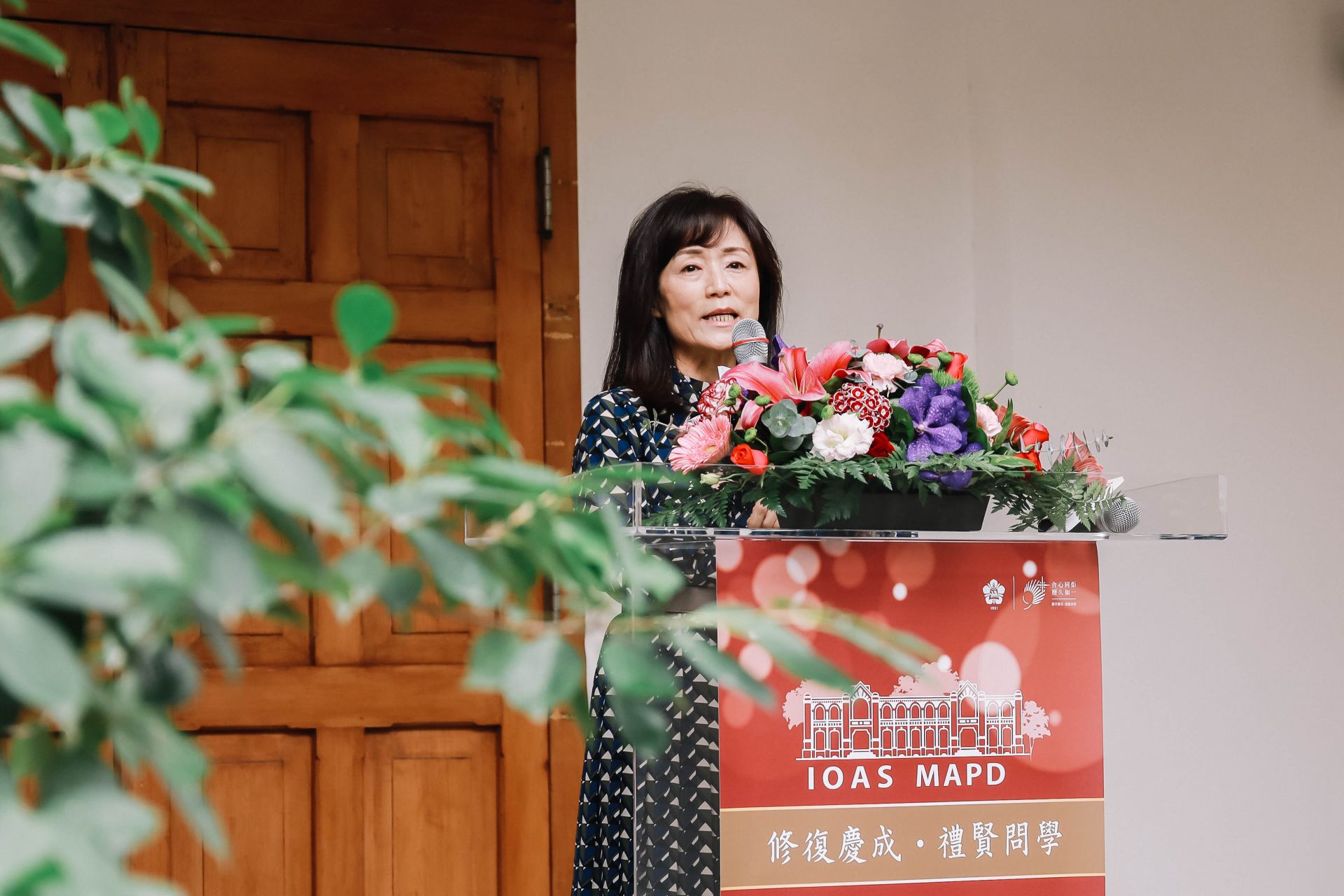
President Huey-Jen Su thanked the all sectors for their assistance and contributions, and was honored to participate in the restoration and renovation of the university's national historic sites during her tenure.
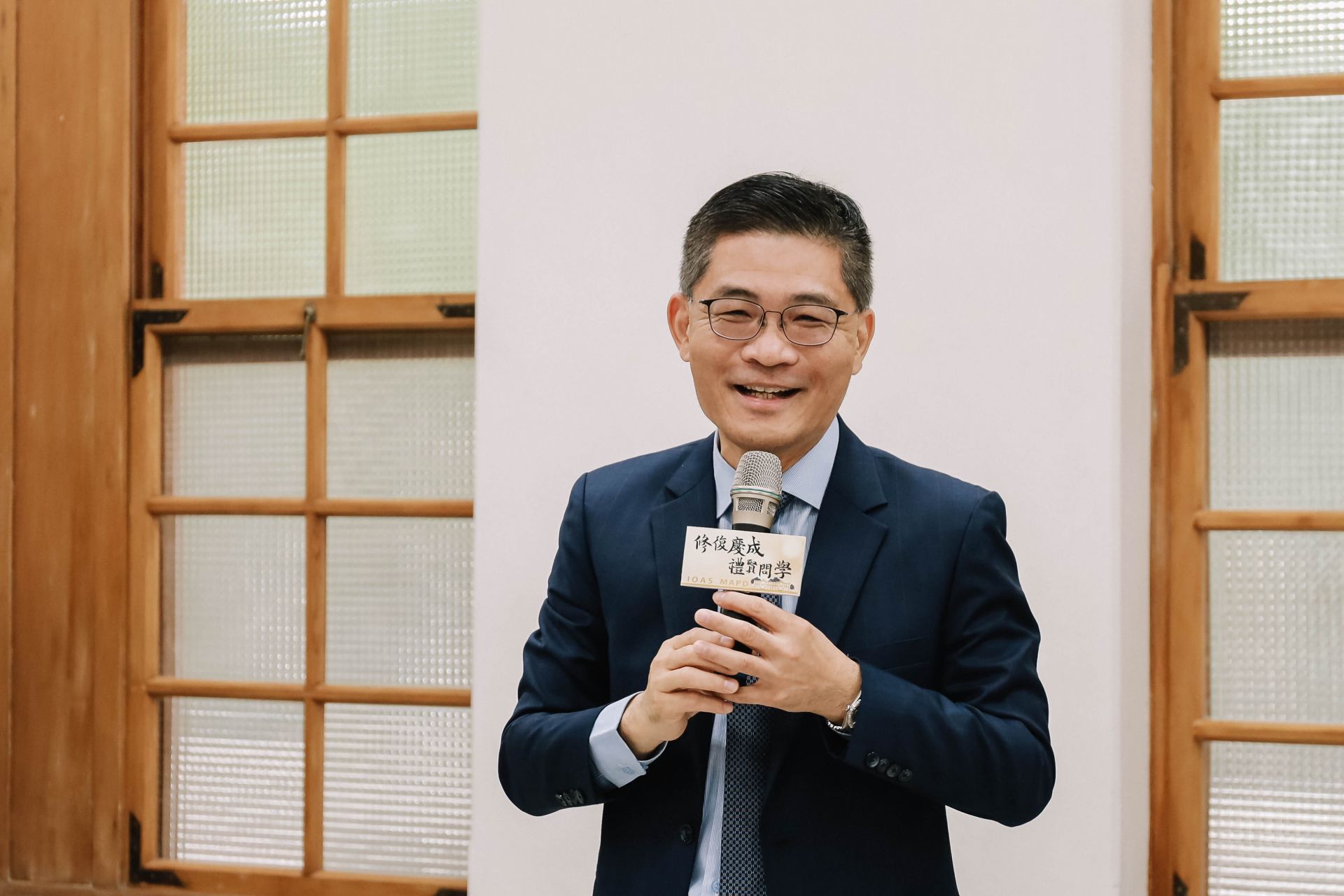
NCKU's new President Shen Meng-Ru pointd out that NCKU has an important historical corridor and an important human ecosphere made up of ancient monuments.
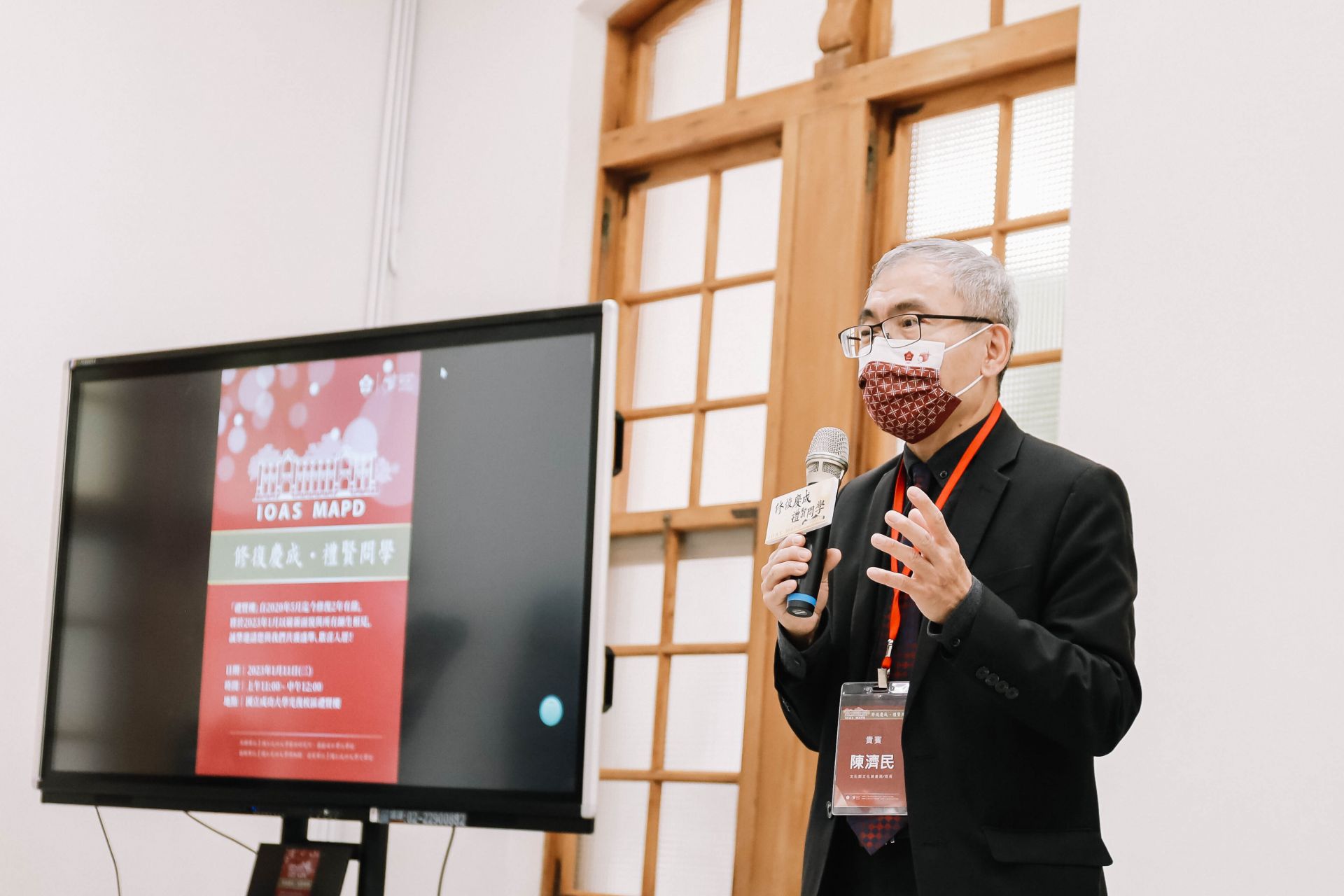
Chi-Ming Chen affirmed NCKU's active actions towards the preservation of cultural heritage and praised the dedication and commitment of the restoration masters.
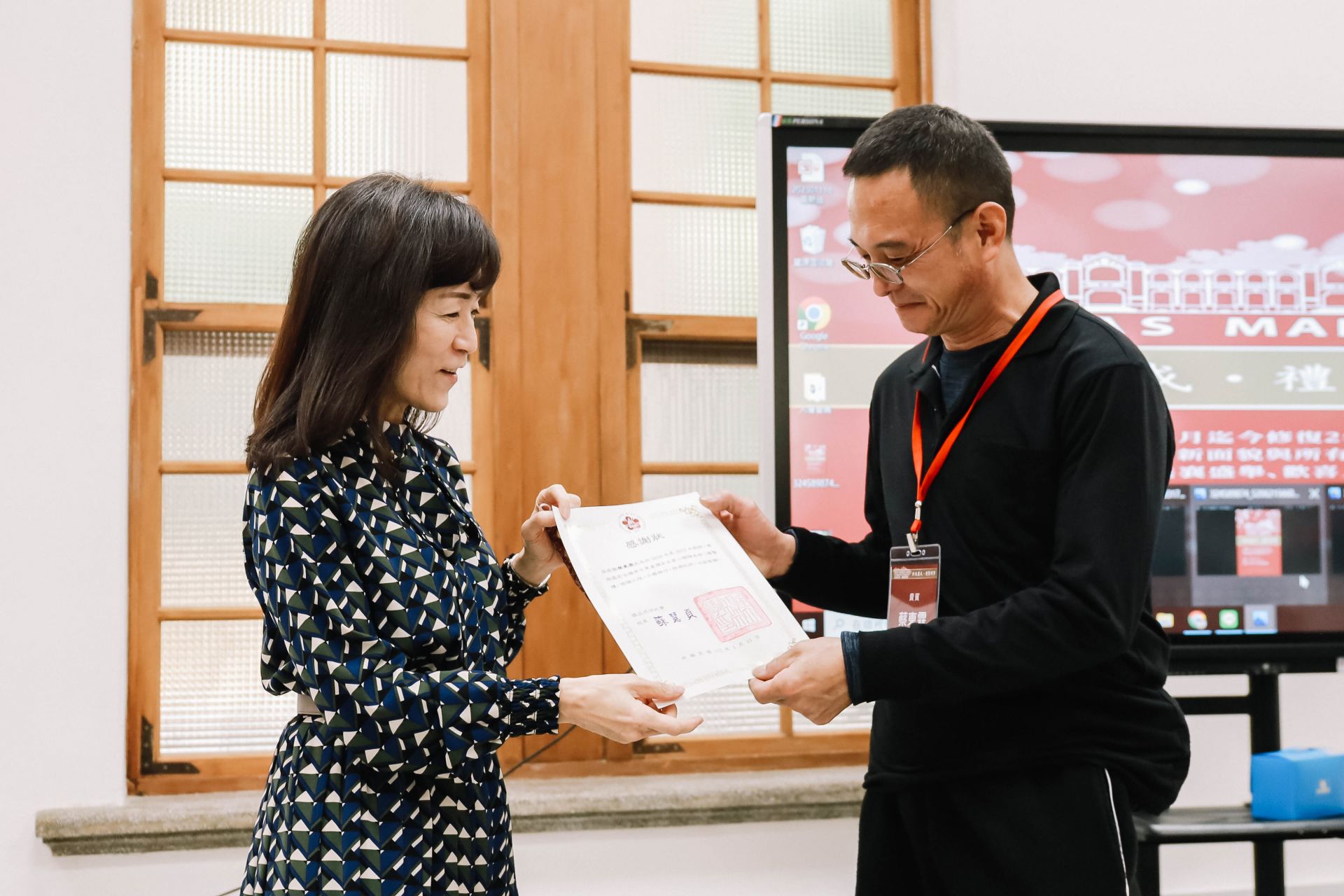
President Huey-Jen Su of NCKU presented a certificate of appreciation for the dedication and hard work of the restoration masters, which was received by Tung-Lin Tsai on behalf of the restoration team.
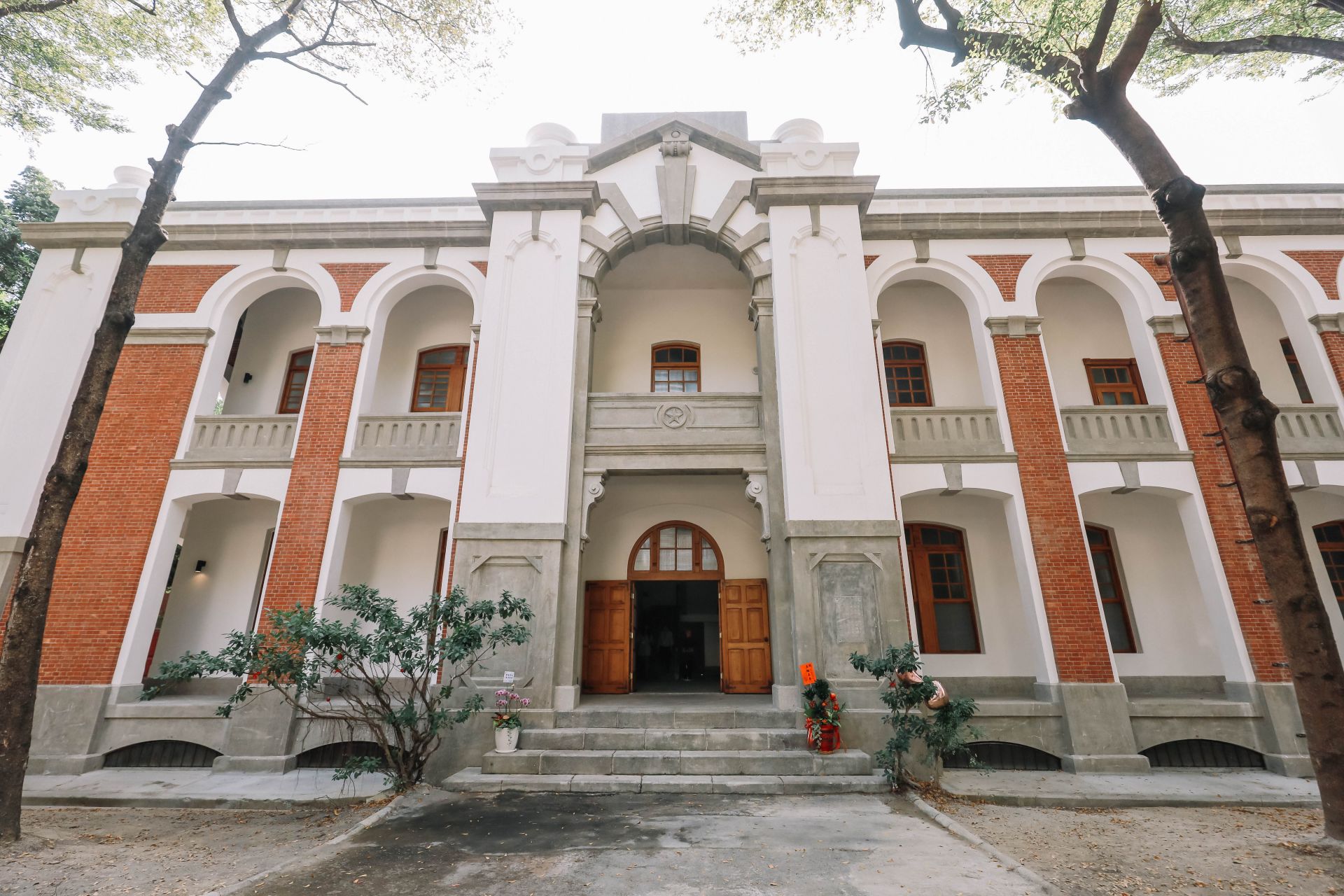
The national historic site "Li Xian Building" was originally the Japanese Infantry Regiment Official Residences of the 2nd Group.
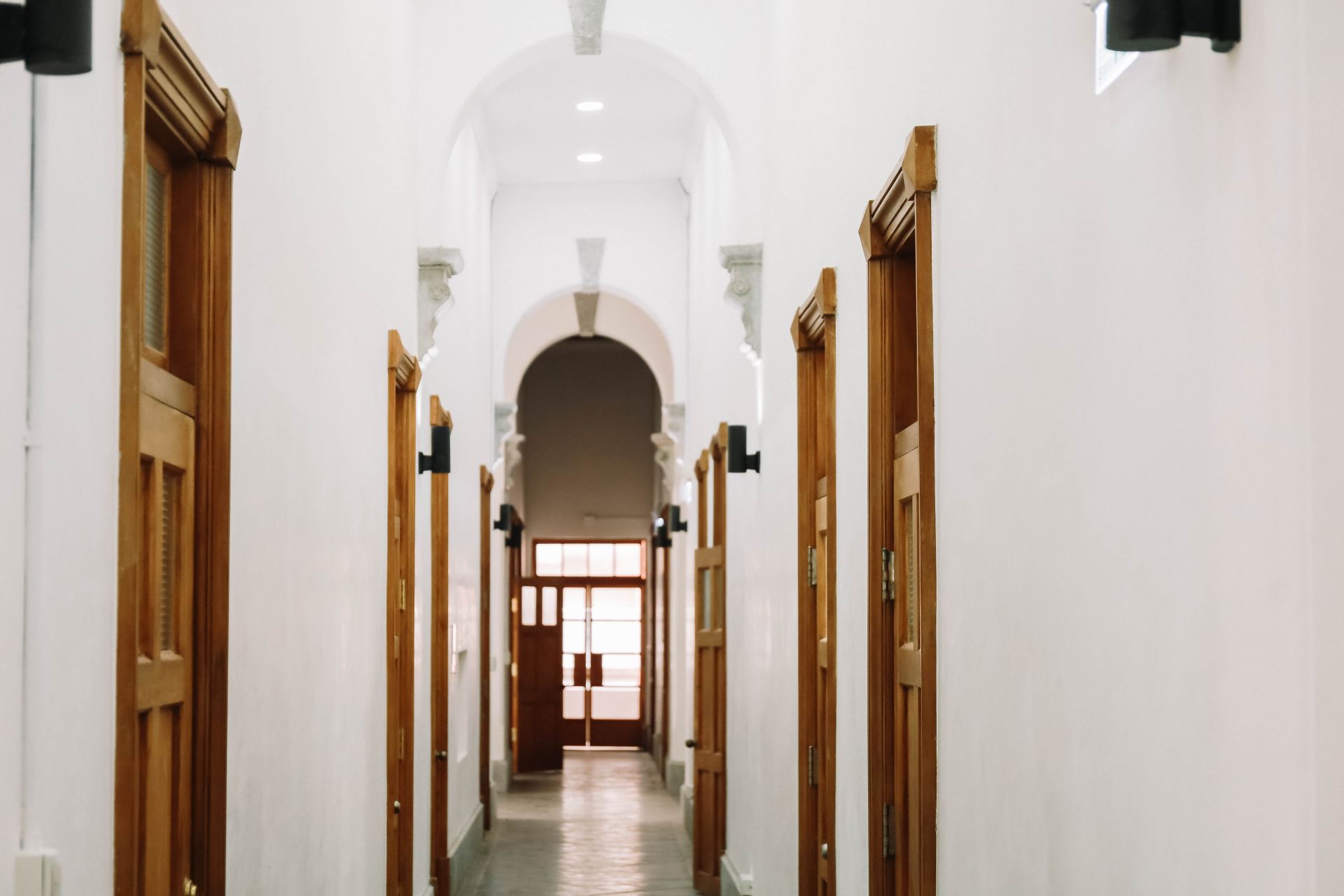
The interior gallery of the Li Xian Building after restoration.
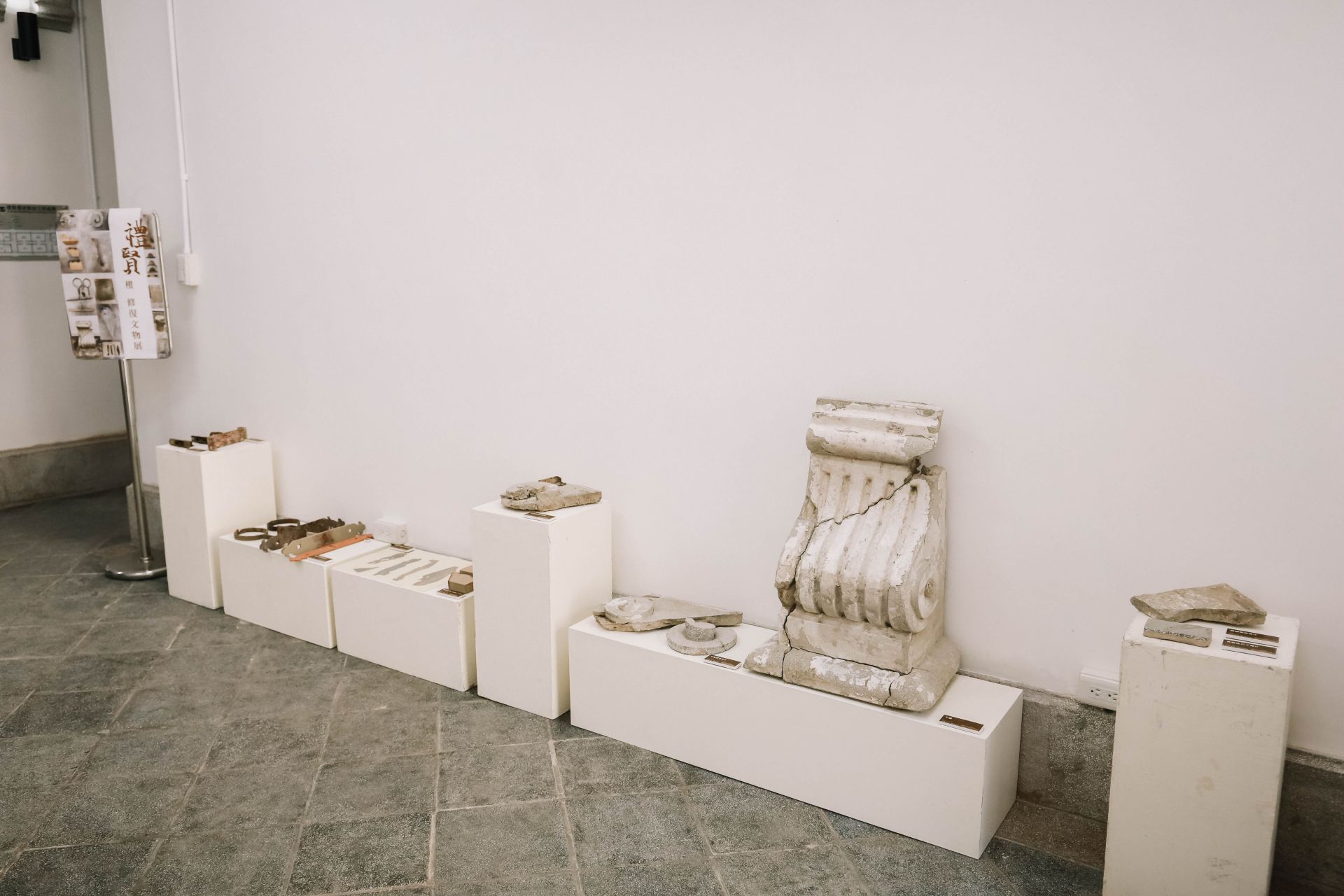
The objects collected during the restoration project will be organized by the NCKU Museum and planned for subsequent exhibitions in the future.
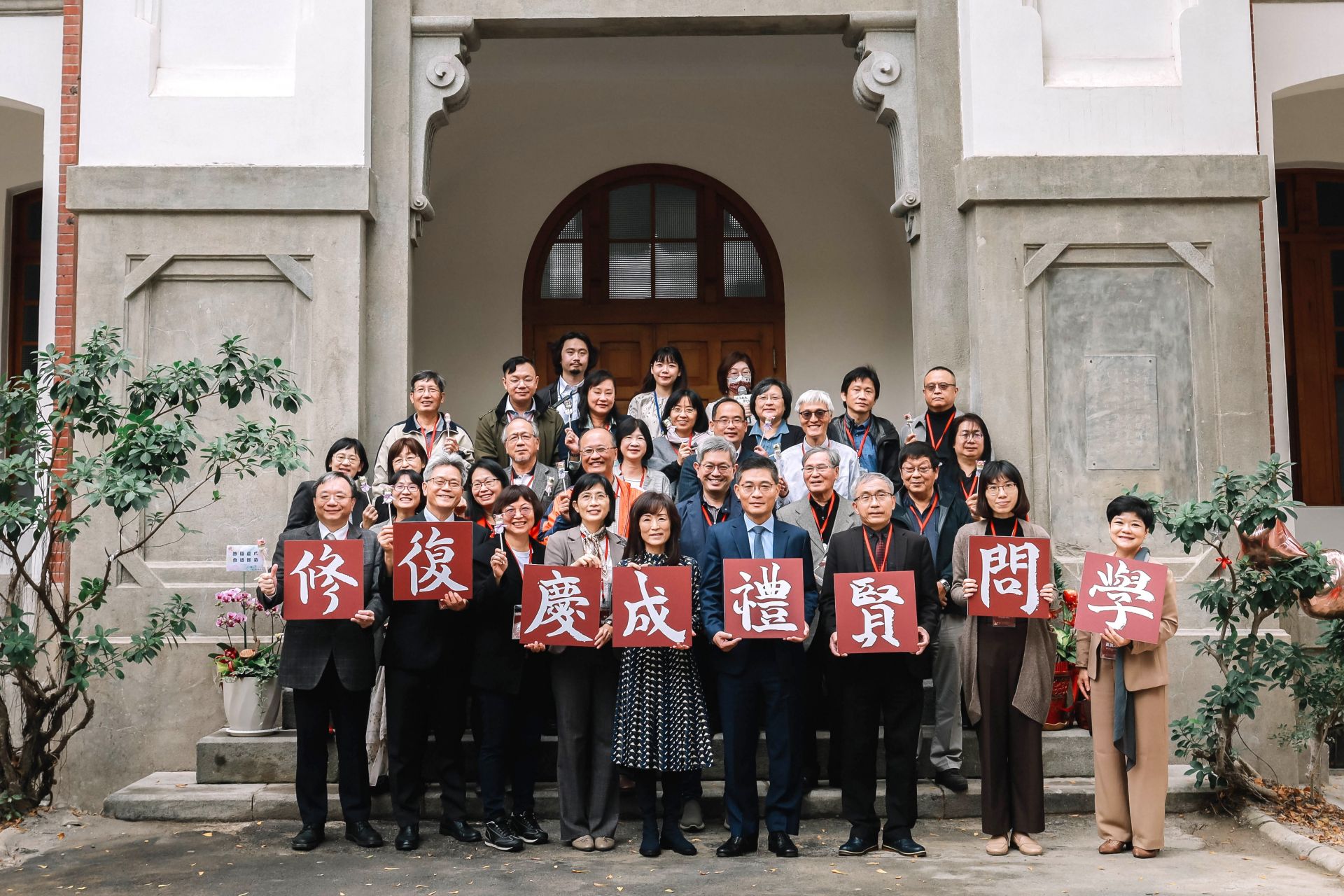
The photo depicts the special guests at the restoration celebration ceremony.
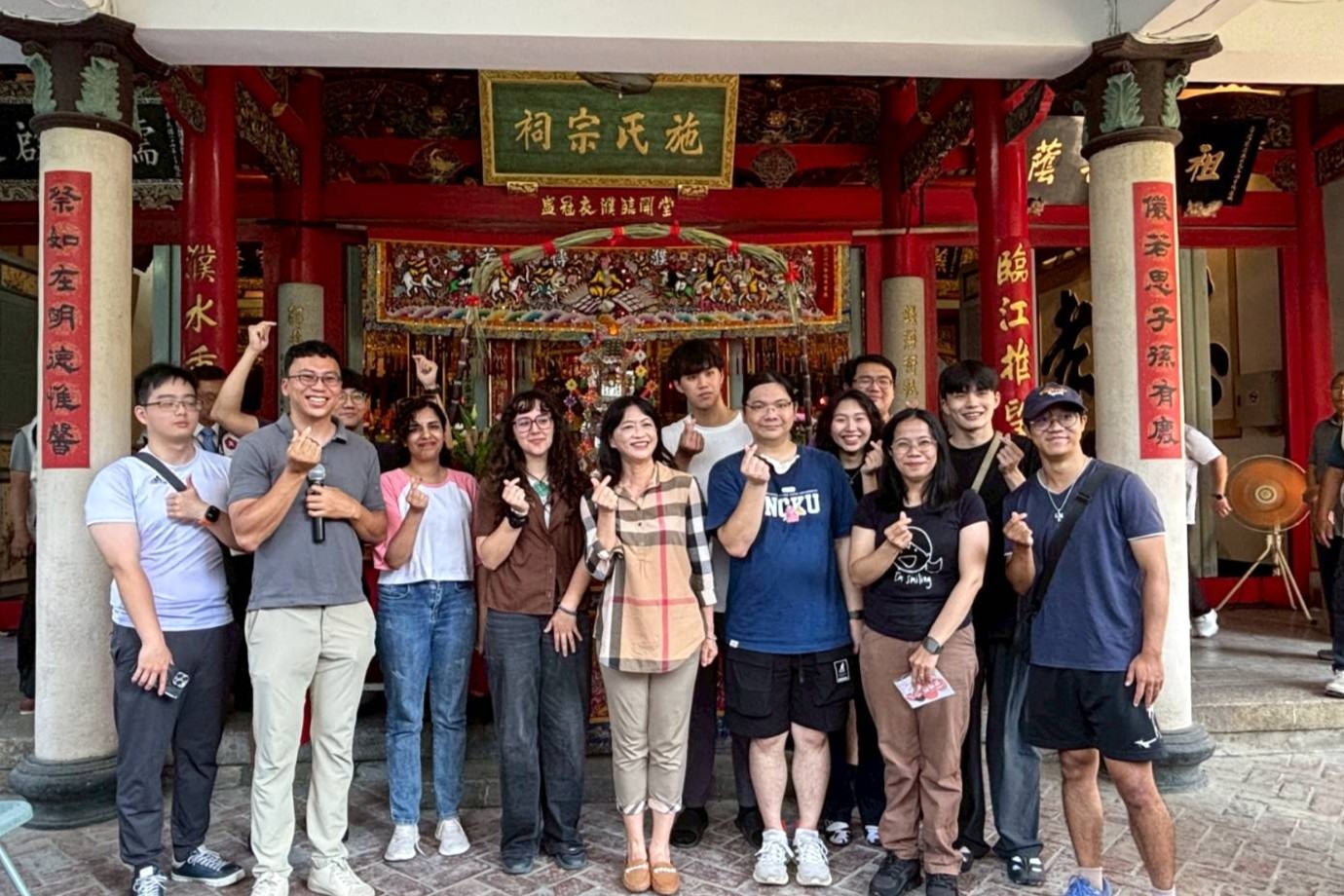
SDG11NCKU International Students Experiencing Tainan’s Cultural Vitality Through Social Engagement
View more
SDG11NCKU Chinese Language Center Hosts Lunar New Year Cultural Experience for International Students
View more